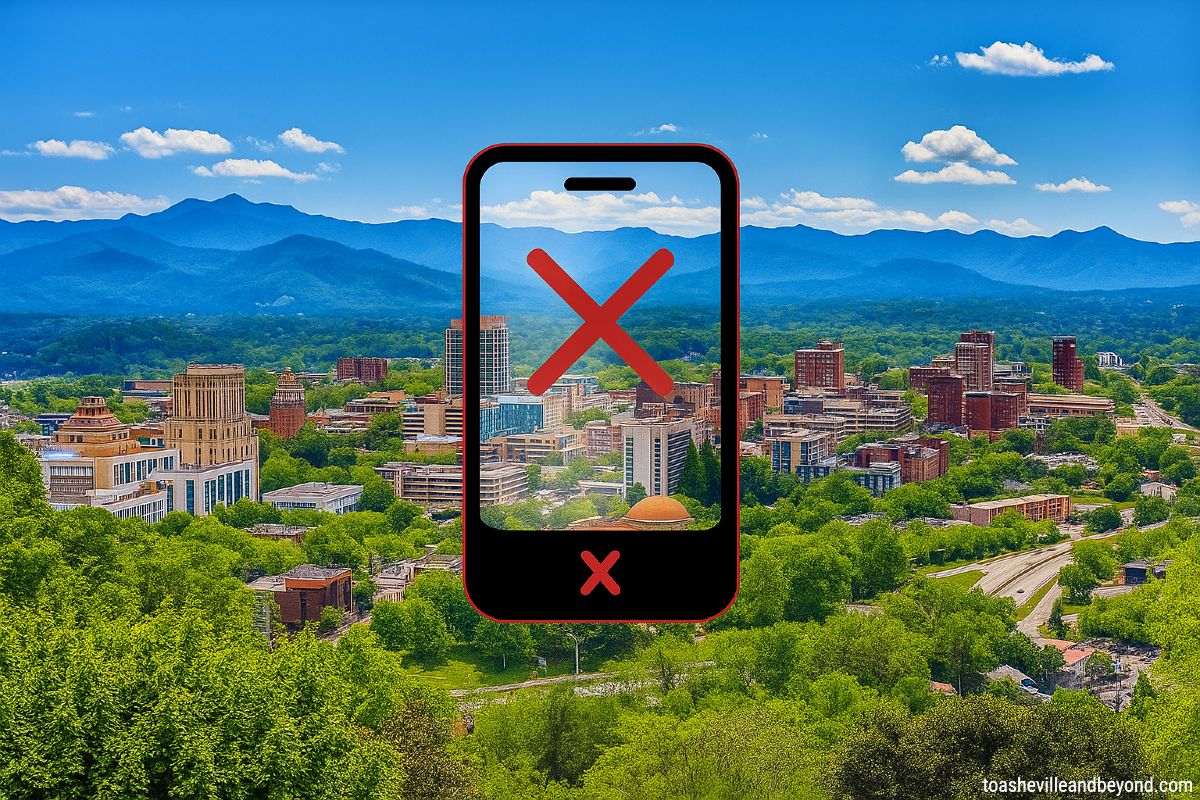In the early days of our brand’s evolution — when we were still operating under the name AskAsheville — we explored building a mobile app for Asheville and Western North Carolina. We met with app designers, sketched out screens, mapped out monetization, and got serious about taking the “city-guide” concept mobile. But somewhere along the way we paused, we stepped back, and ultimately we said no. Here’s why.
1. The mobile-app bubble had burst
Between 2021 and 2023, countless apps promised big returns to local businesses — but then fizzled fast. Apps such as Quibi shut down within a year, even after raising $1.7 billion. Others like Vine or Yik Yak peaked then collapsed under market shifts. We observed a similar trend in Asheville: local businesses investing in apps only to see low downloads, high maintenance costs, and little lasting return.
2. Mobile-friendly websites diminished the need
When we first looked at an app, mobile websites were clunky, and an app made sense. But today, nearly all major listings, guides, and service pages are mobile responsive, so the incremental value of a standalone app is much lower.
3. Value proposition issues
Businesses were told: “You’ll need an app to survive.” But when the audience doesn’t support it or the features don’t deliver, a business ends up investing time and money without payoff. Why download an app that limits listing options and features if you can just browse Google and get full choice?
4. Local focus doesn’t scale like national apps
Apps that succeed often serve globally or across many markets: finance, travel, e-commerce. Room for a city-specific app like “Asheville Everything” is limited. Who downloads a guide app for a single city if they only use it once?
5. Gatekeeping & pay-to-play risks
We saw local app companies pitch exclusivity— “get on our app or you’re invisible.” That creates a pay-to-play ecosystem, borders local businesses out, and diminishes trust. It’s the opposite of open community.
6. Technical & operational risk
Many apps fail due to poor UX, bugs, and maintenance neglect. For instance, Sonos lost $30 m due to buggy app rollout. Even large institutions struggle to keep apps running properly.
7. Mis-selling apps to SMBs
Local app marketers told small businesses that websites and social media could be abandoned in favor of the app. In reality, businesses with weak fundamentals still failed—even with an app.
Our conclusion
So after extensive evaluation, we decided to scrap the “AskAsheville app” project. Our strategy will remain focused on responsive websites, blogs, social media, and storytelling—platforms we control, that deliver measurable results, and that don’t lock you into an app-store dependency.
We learned from the market’s cautionary tales (Quibi, Vine, Appster) that an app is not a shortcut to success—it’s a tool that may or may not pay off.
For members of Asheville’s business community: invest wisely in what your customers actually use and value, not in hype. We’re here to help you build visibility, credibility, and momentum the smart way.

